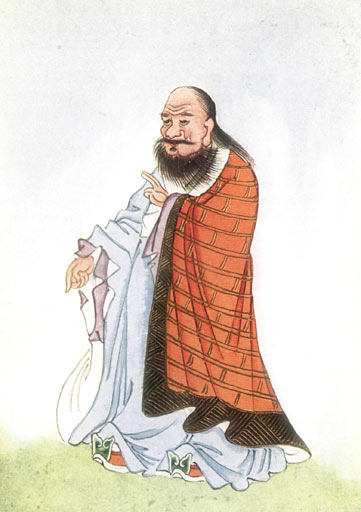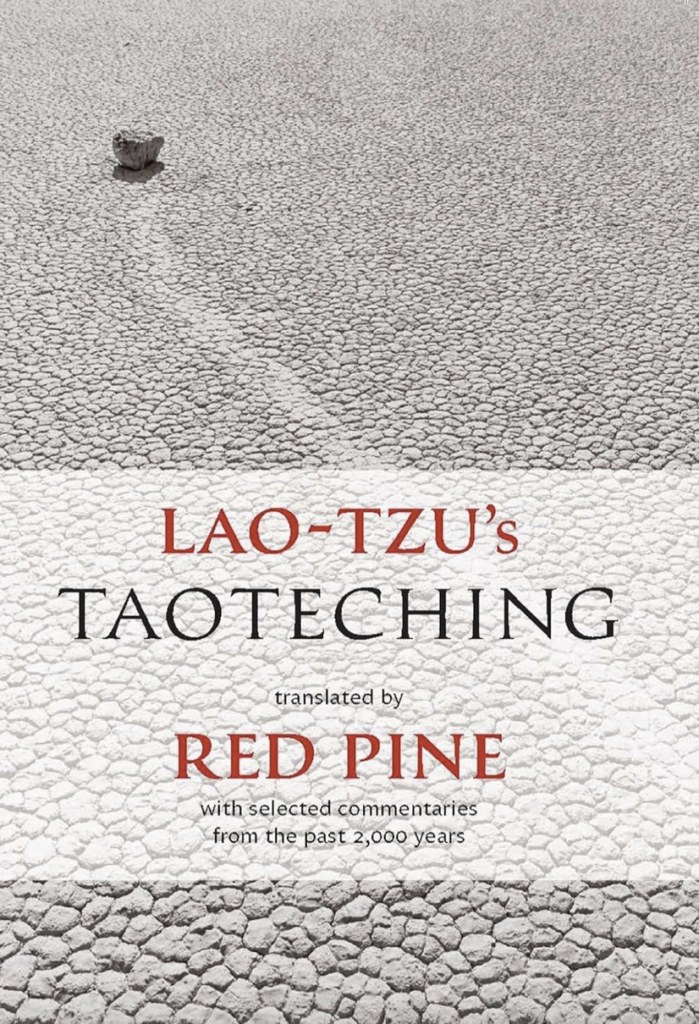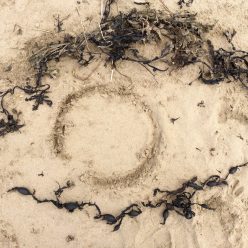
Heaven and Earth are not humane;
They regard the ten thousand things as straw dogs.
The Sage is not humane;
He regards the common people as straw dogs.
The space between Heaven and Earth – is it not like a bellows?
It is emply and yet not depleted;
Move it and more always comes out.
Much learning means frequent exhaustion.
That’s not so good as holding on the mean.
(Translation by Robert Henricks)
As it rejects the inherent goodness of nature, doesn’t this chapter contradict everything we thought we knew about the Tao which, we might have assumed, played the role of God or Buddha nature in other religions?
Roger Ames & David Hall tell us that “the image of ‘straw dogs’ can be read in at least three different yet complementary ways.”
“First, nature does not participate in a kind of human exceptionalism in which the human being is singled out for special treatment. Nature treats all things, human and otherwise, with the same degree of care.
“Second, both nature itself and the sages who model themselves on it treat all things and all people with parity, even the seemingly least among them.
“Third, ‘straw dogs’ as sacrificial artifacts are celebrated according to the proper season, then abandoned when that season has passed. Even a clutch of straw is entitled to reverence at the proper time and place. In the natural cycle, all things have their moment, and when that moment passes, they must pass with it.
“Repeatedly the Daodejing expresses a fascination for the way in which an indeterminate source spontaneously and inexhaustibly gives rise to the provisionally determinate phenomena that we experience around us.”

Red Pine tells us that the literal meaning of the word used on the first line – pu-jen (buren) – is “no-heart,” and uses the word “heartless” to translate it. D C Lau had said “ruthless.” Ames & Hall translate it as “partial,” which seems to me closer to what is meant when talking about Heaven and Earth: they are not deliberately “mean,” they simply cannot have preferences, take sides, and must treat all things as subject to time and circumstances. At times, like straw dogs, part of a ritual and seen as sacred, and at other times, when the ritual is over, as mere litter to be discarded. Likewise, there is no feeling involved in the sage who regards the common people as straw dogs.
Alan Chan quotes Wang Pi’s commentary on chapter 5:
“Heaven and earth abide by tzu-jan [‘naturalness’, that which is ‘so of itself’]. Without their doing or making anything, the ten thousand things themselves govern one another and put their affairs into order. Thus (heaven and earth) ‘are not benevolent’. Benevolence necessarily involves setting up and changing things, dispensing favors and doing things for them. If things were thus set up and changed, they would lose their true nature. With favors and (discriminating) action, then things would not be equally preserved … Do nothing [wu-wei] to the ten thousands things, and they will be at ease in their own functions; then indeed nothing will not be self-sufficient.”
So, in spite of Wang Pi’s “non sectarian stance,” Chan remarks, “while benevolence may be the most admirable of conducts (chapter 19), it pales by comparison with nonaction (wu-wei), a concept which Confucius recognizes and applies to the highest sage. One strong message that emerges from all the classics, as Wang Pi firmly believes, is that ethically and politically naturalness expresses itself in nonaction.”
In Wang Pi’s words: “The Way in its formlessness and nonaction, sustains and completes the ten thousand things. Therefore, those who follow the Way take nonaction as their master [or, dwell in nonaction] … Then, things will obtain their true nature and become one with Tao (chapter 23).
The last lines focus on how nonaction help understand the way one can “model after Tao,” and thus “realize nature.” Like “the space between Heaven and Earth” compared to a bellows, which produces energy out of the apparent emptiness of air, one must keep one’s body empty. Chan says “the body must be kept ‘empty’ – that is, pure of defilements – so that the spirits are not harmed … governing the body consists of abandoning desires, making the ‘five inner organs’ pure and ensuring that the spirits remain in the body.” So, “it is emply and yet not depleted.” This is what is referred to in Taoist practice as “guarding the One.” “To guard the One, a careful diet and other forms of abstinence are recommended … The precious vital essence should only be used sparingly … Besides abstinence and moderation, breathing exercises also contribute to Taoist self-cultivation … Breathing control can help ensure an easy and even circulation of ch’i energy.”
The last two lines “Much learning means frequent exhaustion. That’s not so good as holding on the mean” are translated by D C Lau as “Much speech leads inevitably to silence. Better to hold fast to the void,” and by Red Pine as “talking only wastes it, better to keep it inside.” It is, however, translated by Ames & Hall as “It is better to safeguard what you have within than to learn a great deal that so often goes nowhere,” which keeps the focus on learning in general, rather than restricting it to “speech.”
To make sure “nonaction” is never taken to mean “no-action,” but instead, ”spontaneous action” – Ames & Hall translate it as “noncoercive action that is in accordance with the de (power) of things.” Chan adds: “Obviously, nonaction has little to do with total inaction, but intimates the workings of Tao. Human beings, ‘on account of their immediate causes’ (chapter 51), can initially be seen to follow the way of heaven and earth, in the sense that the seemingly haphazard ways of human life conform to specific patterns. The deeper idea, however, is not to model artificially after something else, but ‘to take nonbeing as the basis of all functions’, so that virtue may be completely utilized (chapter 38) and of all beings ‘be at ease in their own functions’.”
Sources:
Robert G Henricks – Lao-Tzu, Te-Tao Ching
Alan K L Chan – “A Tale of Two Commentaries: Ho-shang-kung and Wang Pi on the Lao-tzu in Lao-tzu” and the Tao-Te-Ching, ed. Livia Kohn and Michael Lafargue
Roger T Ames and David L Hall – A Philosophical Translation – Dao De Jing – Making this Life Significant”
D C Lau – Lao Tzu – Tao Te Ching
Red Pine (Bill Porter) – Lao-tzu’s Taoteching
